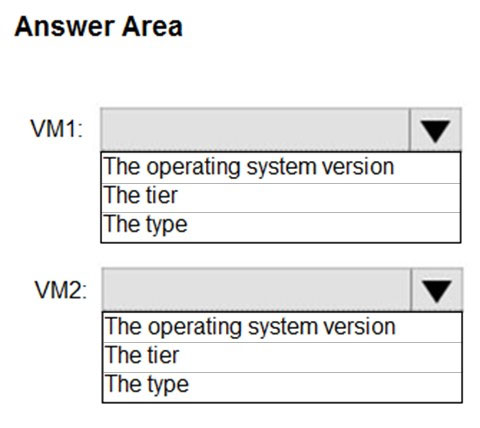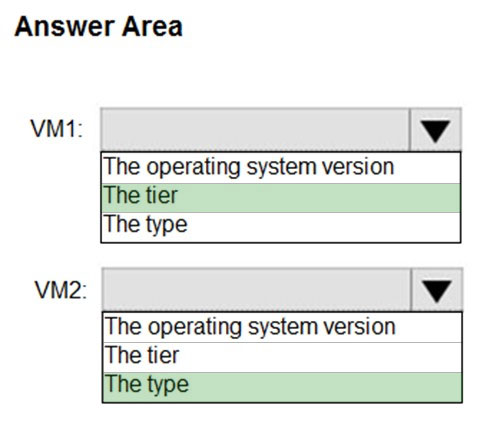

HOTSPOT -
You have two Azure virtual machines in the East US 2 region as shown in the following table.
You deploy and configure an Azure Key vault.
You need to ensure that you can enable Azure Disk Encryption on VM1 and VM2.
What should you modify on each virtual machine? To answer, select the appropriate options in the answer area.
NOTE: Each correct selection is worth one point.
Hot Area:

dirgiklis
Highly Voted 4 years, 11 months agoAZGregor
4 years, 1 month agoPatchfox
3 years, 1 month agocostaluisc
2 years, 6 months agogboyega
4 years, 7 months agolevo017
4 years, 5 months agoSolanki
Highly Voted 4 years, 8 months agoaythan09
4 years, 8 months agoepomatti
Most Recent 1 year, 1 month ago_ajay
1 year, 1 month agowardy1983
1 year, 2 months agoflafernan
1 year, 2 months agomajstor86
1 year, 11 months agoben230
3 years, 2 months agorsharma007
3 years, 5 months agoSandroAndrade
3 years, 8 months agogcpbrig01
3 years, 10 months agomilind8451
3 years, 11 months agoSampaiolc
3 years, 12 months agocertprep2021
4 years agoThi
4 years agonicksu
3 years, 8 months agoB1T3X
4 years agobluetaurianbull
4 years, 1 month agotarq
4 years agoinf
4 years ago